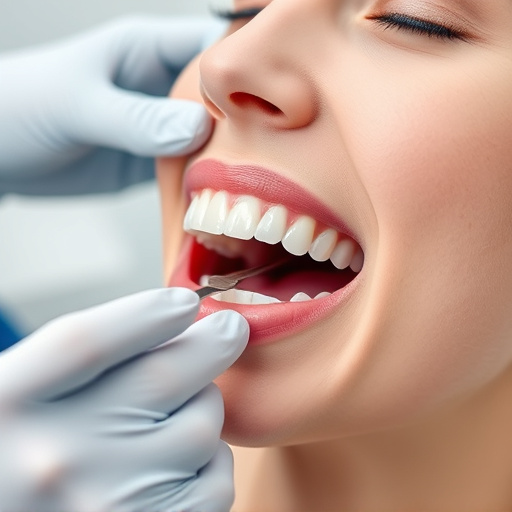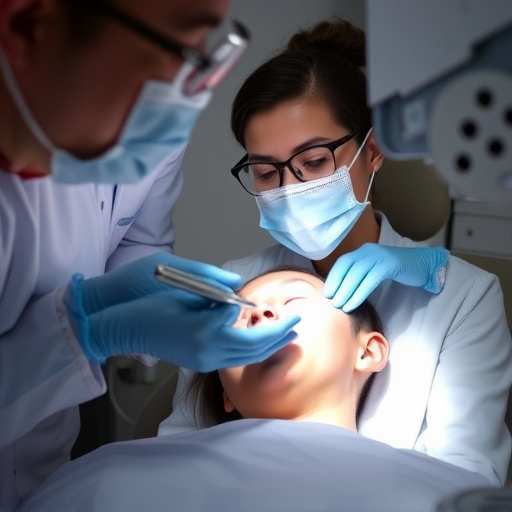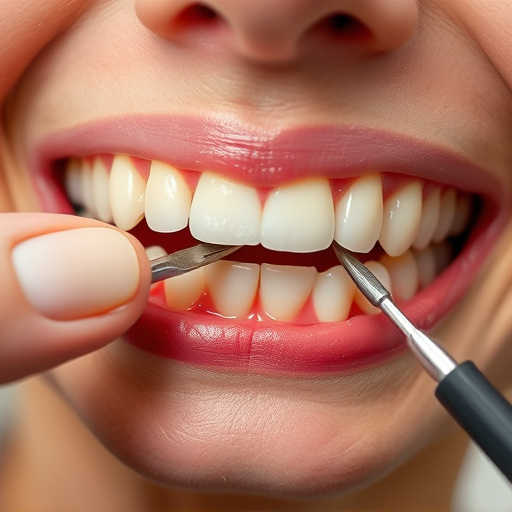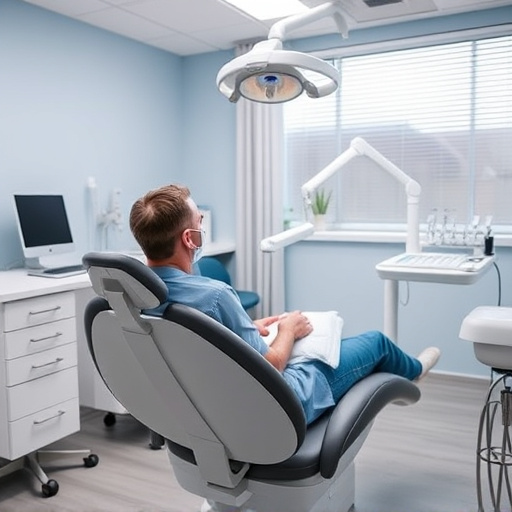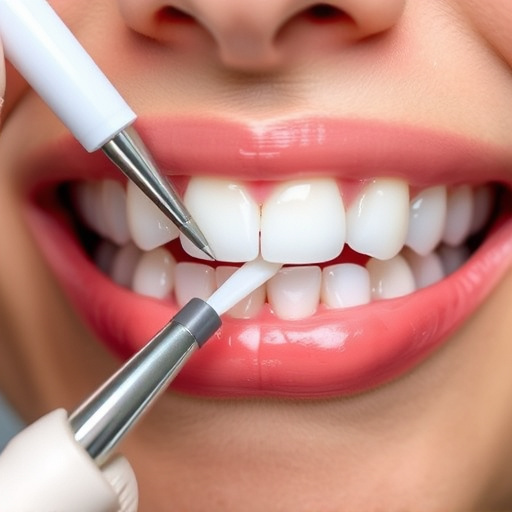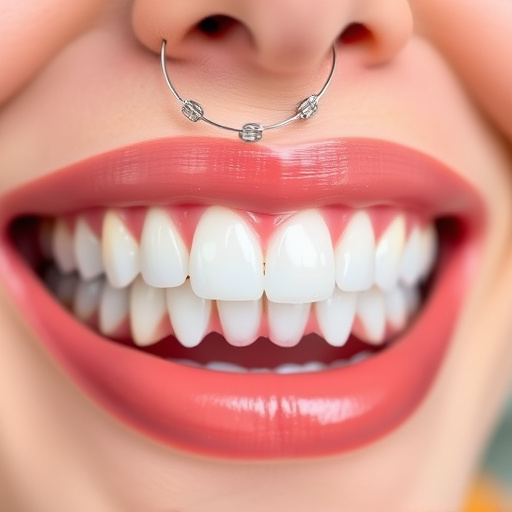Single tooth implants are modern dental solutions, offering long-term alternatives to bridges or dentures. This procedure involves surgically placing a titanium post into the jawbone for an artificial root, supporting a custom crown that feels natural. Implants provide secure comfort during eating and speaking, aid in maintaining oral health by preventing bone loss, and promote better hygiene. They offer functional and aesthetic advantages over traditional methods, encouraging patients to maintain good dental care routines, reducing gum disease risk, and enhancing facial aesthetics. Success depends on proper post-surgical care, including regular check-ups and a balanced diet, with special attention for children developing oral hygiene practices.
Single tooth implants offer a revolutionary solution for oral health, enhancing overall hygiene practices. This advanced dental procedure provides a permanent and functional replacement for missing teeth, allowing for improved cleaning and care. In this comprehensive guide, we’ll explore the benefits of single tooth implants, from their impact on oral hygiene routines to the implementation process and aftercare. Discover how these implants support better oral health and restore your smile’s confidence.
- Understanding Single Tooth Implants: A Comprehensive Overview
- The Impact on Oral Hygiene: Benefits and Improved Practices
- Implementation and Aftercare: Ensuring Long-Term Oral Health Success
Understanding Single Tooth Implants: A Comprehensive Overview

Single tooth implants are a modern dental solution designed to replace missing teeth, offering a long-term alternative to traditional bridges or dentures. This advanced procedure involves surgically placing a tiny titanium post into the jawbone to serve as an artificial root, providing a sturdy foundation for a custom-made dental crown. The key advantage lies in their natural appearance and feel, seamlessly integrating with surrounding teeth. Unlike removable alternatives, these implants don’t shift around in the mouth, ensuring consistent comfort and confidence during eating and speaking.
This cosmetic dentistry option is not merely about aesthetics; it’s also a practical choice for maintaining oral health. By mimicking the structure of natural teeth, single tooth implants support better oral hygiene practices. They prevent bone loss, a common issue with missing teeth, by stimulating the jawbone through osseointegration, a process where the implant fuses with bone tissue. Moreover, their fixed nature makes it easier to clean between teeth, contributing to improved overall dental health and reducing the risk of gum disease.
The Impact on Oral Hygiene: Benefits and Improved Practices
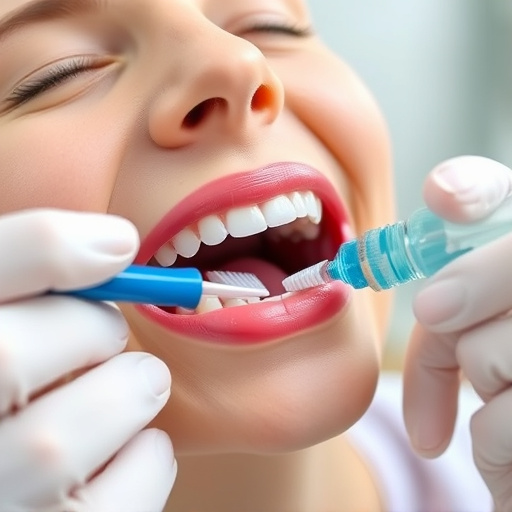
Single tooth implants offer a transformative solution for oral hygiene, promoting better practices and enhancing overall oral health. When compared to traditional bridges or dentures, implants provide a more secure and stable foundation for missing teeth. This stability encourages patients to maintain their regular brushing and flossing routines, knowing that their restorations are firmly in place. Furthermore, the seamless fit of implants reduces the risk of food debris and plaque buildup in hard-to-reach areas, minimizing the chances of gum disease and other oral health issues.
The benefits extend beyond improved hygiene; implants also boost self-confidence and facial aesthetics. With a natural-looking tooth replacement that blends seamlessly with surrounding teeth, patients can smile with confidence without worrying about ill-fitting or visible restorations. This psychological boost often translates into better oral care habits, as individuals are more inclined to prioritize their dental wellness when they feel good about their appearance.
Implementation and Aftercare: Ensuring Long-Term Oral Health Success
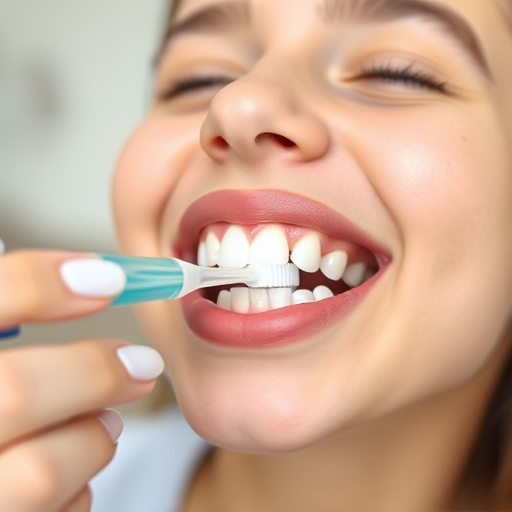
The successful implementation of single tooth implants requires careful planning and execution. After the surgical placement of the implant, proper aftercare becomes paramount for long-term success. Patients must adhere to specific cleaning routines, including regular brushing and flossing around the newly installed implant to prevent infection and ensure its integration into the jawbone.
During the healing period, it’s crucial to maintain a balanced diet, avoiding hard or sticky foods that could dislodge the implant. Regular dental check-ups are essential to monitor the healing process and address any concerns promptly. In the context of children’s dentistry, careful consideration is needed for younger patients, often involving specialized techniques and temporary solutions until they reach an age where they can effectively manage oral hygiene practices, including the care of dental crowns supporting single tooth implants.
Single tooth implants offer a superior solution for oral health, promoting better hygiene practices. By integrating seamlessly with natural teeth, they facilitate improved cleaning and maintain overall oral well-being. With proper aftercare, these advanced dental procedures ensure long-term success, enhancing patients’ quality of life and smile aesthetics. For those seeking effective oral care, single tooth implants stand out as an excellent choice for maintaining a healthy, vibrant smile.








